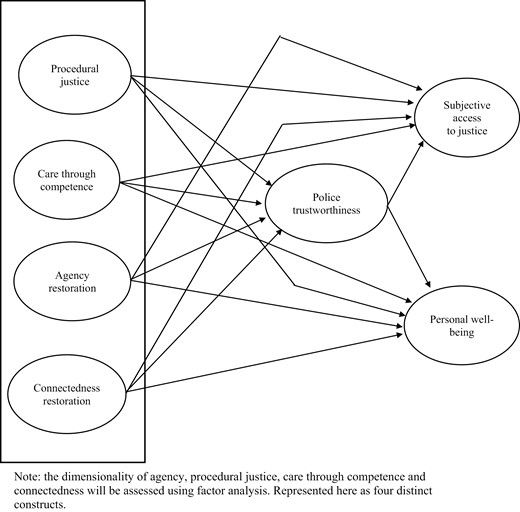Reposted by: Ben Bradford
Amal Ali, Jasmine Oware, @jacksojp.bsky.social, @benbradford.bsky.social show that calls for service are concentrated in disadvantaged neighbourhoods- where they're more likely to experience police force🚓

by José Pina-Sánchez — Reposted by: Ben Bradford
www.theguardian.com/law/2025/oct...
To put it mildly, Robert Jenrick is a complete imbecile who does not know what he is talking about:
www.sentencingacademy.org.uk/wp-content/u...

Reposted by: Ben Bradford, Daniela Gabor, Christian Odendahl , and 17 more Ben Bradford, Daniela Gabor, Christian Odendahl, Steve Peers, Benny Geys, Mark D. White, Rosemary A. Joyce, Martin Paul Eve, Manuela Boatcă, David S. Cohen, Daniel W. Drezner, David G. Stewart, Gary D. Rawnsley, Margot C. Finn, Michael D. McDonald, Dana R. Fisher, Federica Genovese, Pam Jarvis, Maria Sobolewska, David Spurrett

Reposted by: Ben Bradford, Daniela Gabor, Christian Odendahl , and 17 more Ben Bradford, Daniela Gabor, Christian Odendahl, Steve Peers, Benny Geys, Mark D. White, Rosemary A. Joyce, Martin Paul Eve, Manuela Boatcă, David S. Cohen, Daniel W. Drezner, Gary D. Rawnsley, Margot C. Finn, Michael D. McDonald, Dana R. Fisher, Steven Fielding, Federica Genovese, Pam Jarvis, Maria Sobolewska, David Spurrett

Reposted by: Ben Bradford, Lisa Tompson

by Kai Arzheimer — Reposted by: Ben Bradford
by Ben Bradford
Reposted by: Ben Bradford
What we look for:
🐍 R/Python proficiency
🤖 Teaching and/or doing ML and/or social networks
🌍 Research on inequality, climate, education, social norms & more
Circulate this or apply by 10-Oct 👉 tinyurl.com/5djcc35z

Reposted by: Ben Bradford, Tim Newburn
Lecturer in Criminology (Teaching Track)
by Adam Crawford — Reposted by: Ben Bradford
From our minimum policing standard research project @vp-centre.bsky.social @benbradford.bsky.social @drcaweirich.bsky.social @davejrowlands.bsky.social
👇🏽
www.linkedin.com/pulse/commun...

by Ben Bradford
by Ben Bradford
by Adam Crawford — Reposted by: Ben Bradford, Matt Matravers
www.tandfonline.com/doi/full/10....
www.tandfonline.com/doi/full/10....
More:
vulnerabilitypolicing.org.uk/minimum-poli...
Reposted by: Ben Bradford
https://doi.org/10.1177/14613557241298858

Reposted by: Ben Bradford

Reposted by: Ben Bradford, James Windle
www.jobs.ac.uk/job/DLL511/p...

Reposted by: Ben Bradford

Reposted by: Ben Bradford

Reposted by: Ben Bradford
We're looking for a new head of department (full professor) at UCL Crime Science. Deadline 27 Feb.

Reposted by: Ben Bradford
sethcotlar.substack.com/p/right-wing...

Reposted by: Ben Bradford

Reposted by: Ben Bradford, Juanjo Medina, José Pina-Sánchez
doi.org/10.1093/bjc/...

Reposted by: Ben Bradford
doi.org/10.1080/1043...
We looked at intersectional inequalities in trust in the police in England using a relatively new statistical approach, MAIHDA.

Reposted by: Ben Bradford, Geoff Pearson, José Pina-Sánchez
Spread the word!
Reposted by: Ben Bradford
by Ben Bradford
by Ben Bradford
by Ben Bradford

by Stephen Farrall — Reposted by: Ben Bradford, David Gadd
jobs.nottingham.ac.uk/Vacancy.aspx...


